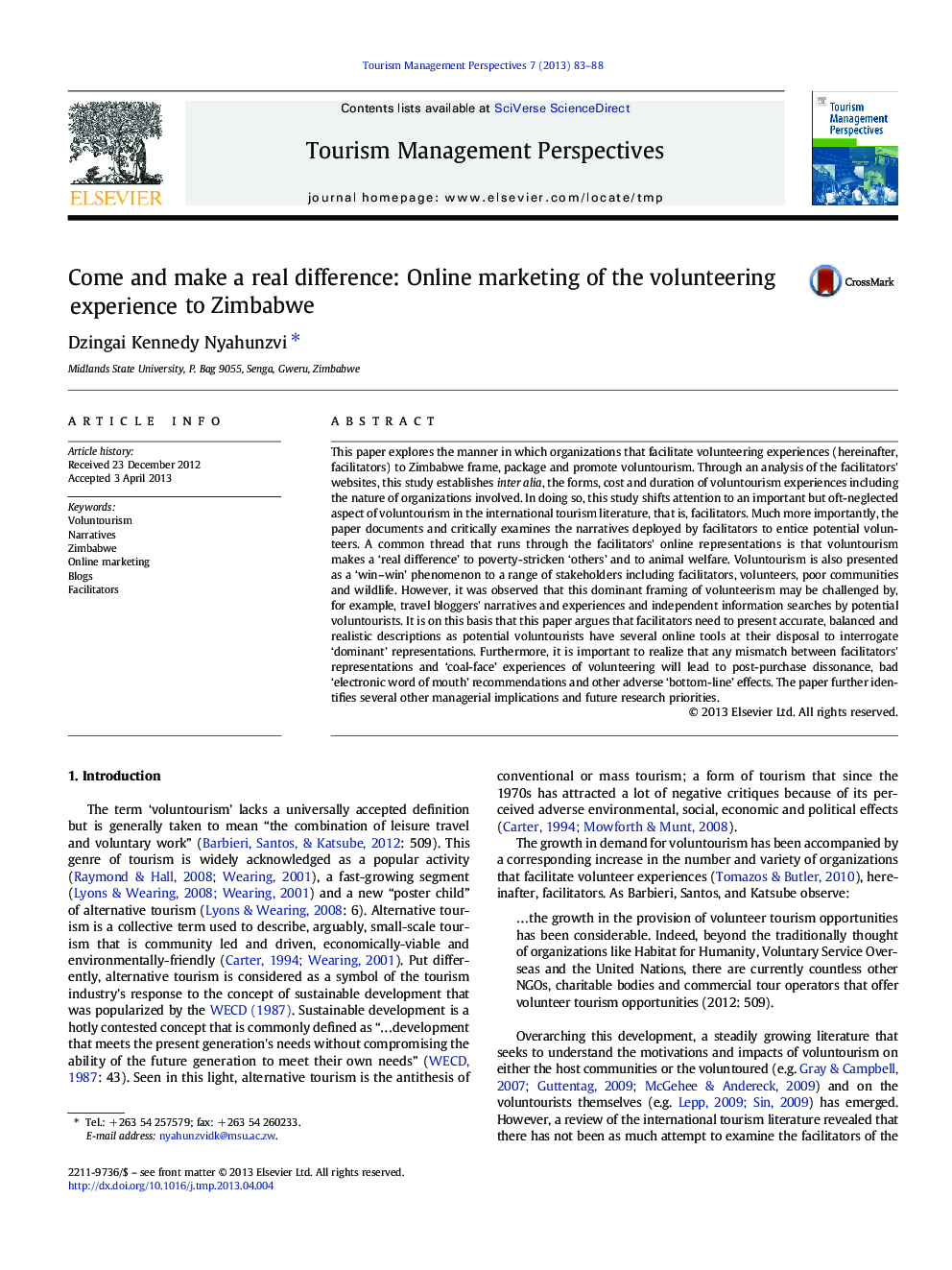| Article ID | Journal | Published Year | Pages | File Type |
|---|---|---|---|---|
| 1013803 | Tourism Management Perspectives | 2013 | 6 Pages |
•Voluntourism was represented as a win–win solution.•Balanced and accurate representations of the volunteering experiences were missing.•Facilitators need to be wary of negative word of mouse recommendations.
This paper explores the manner in which organizations that facilitate volunteering experiences (hereinafter, facilitators) to Zimbabwe frame, package and promote voluntourism. Through an analysis of the facilitators' websites, this study establishes inter alia, the forms, cost and duration of voluntourism experiences including the nature of organizations involved. In doing so, this study shifts attention to an important but oft-neglected aspect of voluntourism in the international tourism literature, that is, facilitators. Much more importantly, the paper documents and critically examines the narratives deployed by facilitators to entice potential volunteers. A common thread that runs through the facilitators' online representations is that voluntourism makes a ‘real difference’ to poverty-stricken ‘others’ and to animal welfare. Voluntourism is also presented as a ‘win–win’ phenomenon to a range of stakeholders including facilitators, volunteers, poor communities and wildlife. However, it was observed that this dominant framing of volunteerism may be challenged by, for example, travel bloggers' narratives and experiences and independent information searches by potential voluntourists. It is on this basis that this paper argues that facilitators need to present accurate, balanced and realistic descriptions as potential voluntourists have several online tools at their disposal to interrogate ‘dominant’ representations. Furthermore, it is important to realize that any mismatch between facilitators' representations and ‘coal-face’ experiences of volunteering will lead to post-purchase dissonance, bad ‘electronic word of mouth’ recommendations and other adverse ‘bottom-line’ effects. The paper further identifies several other managerial implications and future research priorities.
